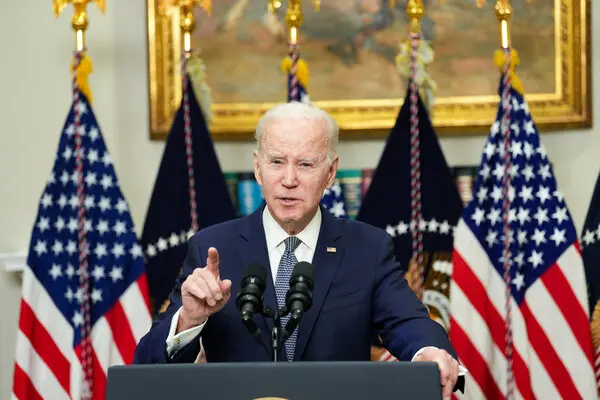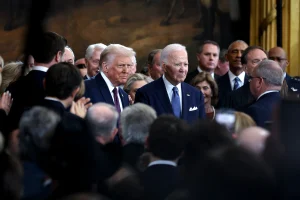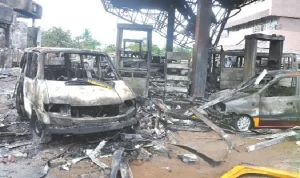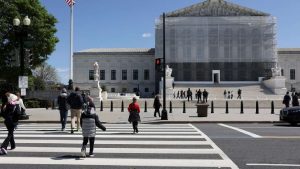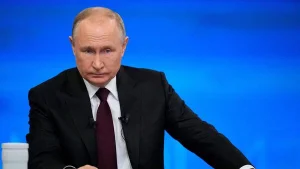President Biden on Monday said the banking system is safe, as he stressed steps taken to limit the fallout from the collapse of Silicon Valley Bank and shore up confidence in the financial system.
“Thanks to the quick action of my administration over the past few days, Americans can have confidence that the banking system is safe,” Mr. Biden said in televised remarks.
Mr. Biden’s remarks came one day after federal regulators announced emergency measures to guarantee all depositors with money at Silicon Valley Bank following its failure, rather than the standard $250,000 in insured deposits. Federal regulators said any losses to the government’s fund would be recovered in a special assessment on banks and that the U.S. taxpayers wouldn’t bear any losses.
Regulators took control of SVB on Friday and on Sunday said they had taken control of a second lender, Signature Bank, one of the main banks for cryptocurrency companies. Officials took the extraordinary step of designating SVB and Signature Bank as a systemic risk to the financial system, which gives regulators flexibility to guarantee uninsured deposits.
Mr. Biden said that deposits in SVB and Signature were safe and customers would have access to their money starting today and no losses would be borne by taxpayers. He said he would ask Congress and banking regulators to strengthen the rules for banks, to “make it less likely this kind of bank failure would happen again.”
“We must get the full accounting of what happened and why,” Mr. Biden said, so that “those responsible can be held accountable.”
“No one is above the law,” he said.
Mr. Biden added that investors in the banks won’t be protected and management will be replaced. He said they knowingly “took a risk and when the risk didn’t pay off, investors lose their money. That’s how capitalism works.”
A senior Treasury official said Sunday that the steps didn’t constitute a bailout because stock and bondholders in SVB and Signature wouldn’t be protected. Policy makers are leery of the intervention being labeled a bailout, wanting to avoid comparisons to the bailouts of big banks tied to the 2008 financial crisis.
“A major run on banks would be terrible. But so is a continuation of the status quo, where a bailout for the rich is regrettable but sound policy, but a bailout for poor people is dangerous socialism,” tweeted Sen. Chris Murphy (D., Conn.).
“Building a culture of government intervention does nothing to stop future institutions from relying on the government to swoop in after taking excessive risks,” said Sen. Tim Scott of South Carolina, the top Republican on the Senate Banking Committee. He said he would seek accountability from both the banks and regulators.
The moves to shore up wavering confidence in the banking system were jointly announced on Sunday by the Treasury Department, the Federal Reserve and the Federal Deposit Insurance Corp.
Despite the efforts to calm investors, stock futures fell Monday and investors piled into the safety of gold and government bonds. Shares of First Republic Bank plunged by more than half in premarket trading despite an agreement for additional financing from JPMorgan Chase on Sunday. European shares, especially bank stocks, were particularly hard hit.
HSBC on Monday said it will buy the U.K. subsidiary of SVB for a symbolic £1, under a deal facilitated by the British government and the Bank of England, and that customers of SVB UK will be able to access their deposits and banking services as normal.

